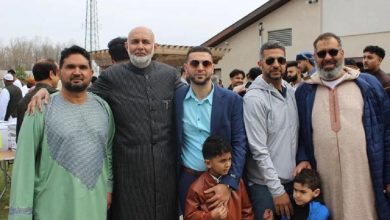Slata Mechouia: Tunisia’s Smoky Grilled Salad That Defines a Nation
How Tunisia’s beloved roasted vegetable dish blends flavor, tradition, and cultural identity.
Among the most beloved dishes of Tunisia, Slata Mechouia (literally “grilled salad”) holds a special place on every table. Known for its smoky, rich flavors and cultural importance, this dish is much more than a simple salad — it is a symbol of Tunisian tradition, creativity, and hospitality.
Origins and Cultural Significance
Slata Mechouia has its roots in Tunisia’s Mediterranean and North African heritage. The dish is typically prepared during the summer, when tomatoes and peppers are at their peak. However, it remains a year-round staple, especially during family gatherings, religious celebrations, and festive occasions.
For Tunisians at home and abroad, Slata Mechouia represents both comfort and identity. Families often prepare it together, with each member helping to grill, peel, and blend the vegetables. It is also a dish proudly shared with guests, symbolizing generosity and warmth.

Preparation and Ingredients
The defining feature of Slata Mechouia is the grilling of vegetables over charcoal or an open flame, giving the salad its signature smoky aroma. The key ingredients include:
-
Tomatoes – roasted until soft and sweet.
-
Green peppers – often mixed with hot chili peppers for a spicy kick.
-
Onions and garlic – grilled for depth and richness.
After grilling, the vegetables are peeled, blended, and seasoned with olive oil, salt, and sometimes cumin. The salad is then garnished with tuna, olives, capers, and boiled eggs, turning it into a filling and visually vibrant dish.
Variations Across Tunisia
While the classic version remains most popular, regional variations exist:
-
In the south, extra chili peppers are added for intense heat.
-
In the coastal areas, Slata Mechouia is often paired with fresh seafood.
-
Some families add herbs like parsley or mint for freshness.
A Dish of Symbolism and Identity
Beyond taste, Slata Mechouia is a dish of resilience and pride. It reflects Tunisia’s ability to transform simple, humble ingredients into something refined and deeply satisfying. For Tunisian Muslims abroad, especially in places like Europe and America, preparing this salad is a way of staying connected to their homeland and introducing others to Tunisian cuisine.

Conclusion
Slata Mechouia is more than a salad — it is an experience. Its smoky flavor, colorful presentation, and cultural symbolism make it one of Tunisia’s most iconic dishes. Whether served as an appetizer, side dish, or centerpiece of a festive meal, it continues to unite generations and carry Tunisian heritage across the world.



